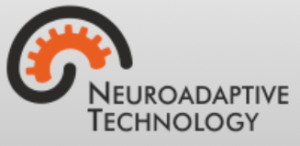The international conference on Neuroadaptive Technology will be held on the 16-18th July 2019 in Liverpool. This will be the second meeting on this topic, the first took place in Berlin two years ago. You’ll find a link at the top of this page for the schedule, registration costs and other details about the meeting.
In this short post, I’d like to give a little background for the meeting and say some things about the goals and scope of the conference. The original idea came from a conversation between myself and Thorsten Zander (my co-organiser) about the absence of any forum dedicated to this type of implicit closed-loop technology. My work on physiological computing systems was always multidisciplinary, encompassing: psychological sciences, wearable sensors, signal processing and human-computer interaction. Work in the area was being submitted and published at conferences dedicated to engineering and computer science, but these meetings always emphasised one specific aspect, such as sensors or signal processing aspects or machine learning. I wanted to have a meeting where all aspect of the closed loop were equally represented, from sensors through to interface design. On the other hand, Thorsten had developed concept of passive brain-computer interfaces where EEG signals were translated into control at the interface without any intentionality on the part of the user.
We had at least two things in common, we were both interested in closed-loop control using signals from the brain and the body and we were both frustrated that our work didn’t seem to fit comfortably into existing forums.
Thorsten took the first step and organised a passive BCI meeting at Demelhorst just outside Bremen for two (very hot) days in August 2014. On the last day of that meeting, along with the other attendees, we batted around various names with which to christen this emerging area of work. If memory serves, I don’t remember anyone coming up with a label that everyone in the room was completely endorsed. The term ‘neuroadaptive technology’ that I appropriated from this 2003 paper from Lawrence Hettinger and colleagues was the one that people were the least unhappy about – and so, when it came time to organise the first conference, that was the name that we ran with.
From the beginning, we decided to make the ‘neuro’ in the title of the conference as broad as possible, encompassing psychophysiological sensors/measures as well as those derived from neurophysiology. At that first conference, we also wanted to draw attention to the breadth of work in this field and so we invited Rob Jacob as a keynote to talk about new modes of human-computer interaction and Pim Haselager to address the ethical implications of the technology, as well as speakers on EEG signal processing. A full list of abstracts and the schedule for that 2017 meeting is available here.
The fundamental thinking behind the neuroadaptive technology conference is that despite the significant range of applications under consideration in this field, which runs from autonomous driving to marketing, researchers share a significant number of interests, such: sensor design, signal processing methods in the field, machine learning for classification, designing implicit modes of human-computer interaction, establishing methodology for evaluation – and that’s far from an exhaustive list.
And so, in Liverpool this July, we’ll be doing it all again with a wide range of speakers from around the world. The deadline for abstract submission is 31st March 2019 and we’re in the process of organising keynote speakers and a clear route to publication for the work presented at the conference.
Full details will appear at the link from the top of this page over the next few months.
